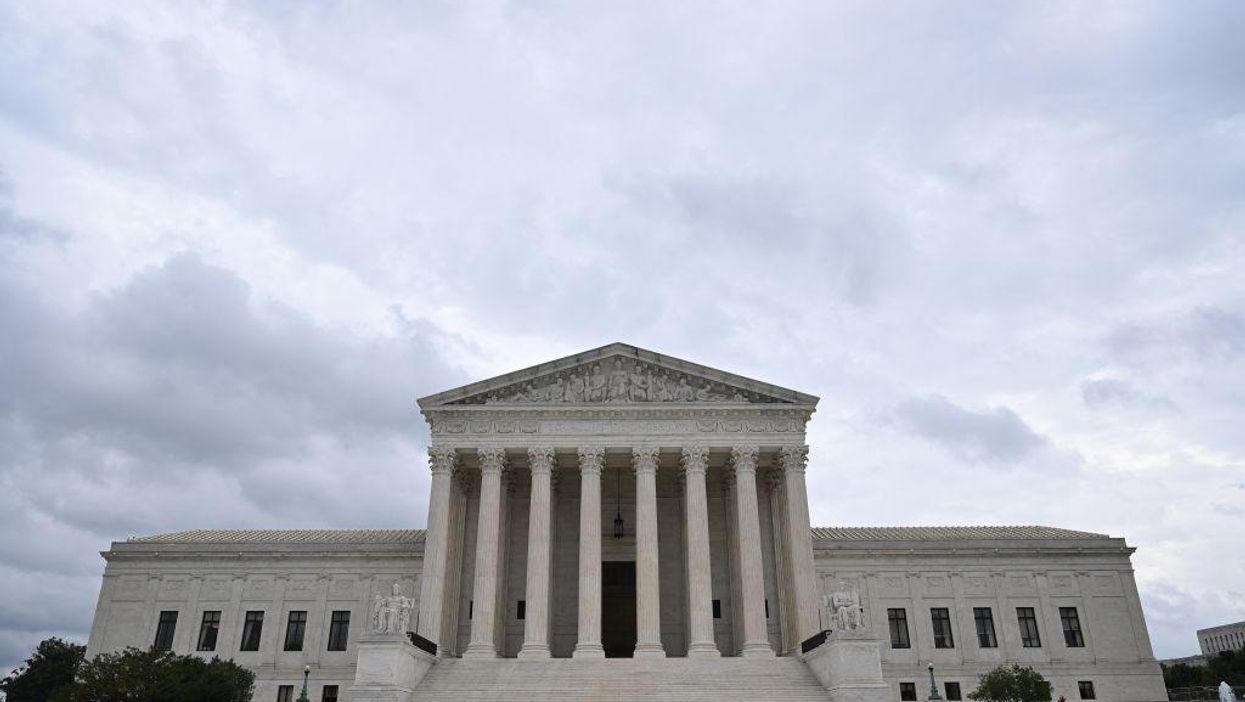
MANDEL NGAN/AFP via Getty Images

The Biden administration's Department of Justice said Friday it will ask the U.S. Supreme Court to block Texas from enforcing its fetal heartbeat law while it continues to fight the law in court.
"The Justice Department intends to ask the Supreme Court to vacate the Fifth Circuit's stay of the preliminary injunction against Texas Senate Bill 8," DOJ spokesman Anthony Coley said in a statement emailed to reporters.
The announcement follows a decision from the 5th Circuit Court of Appeals to overrule a lower court injunction blocking Texas' ban on abortions after six weeks of pregnancy, the point at which an unborn baby develops a heartbeat, except in the case of a medical emergency. Thanks to the 5th Circuit's decision, the law will remain in effect for now, permitting ordinary citizens to take abortion providers suspected of violating the law to court.
The heartbeat law has garnered significant controversy, with the Biden administration and pro-choice activists arguing it unconstitutionally infringes on a woman's right to seek an abortion.
In what was hailed by pro-life activists as a monumental victory, even if temporary, the Supreme Court last month refused to grant an emergency request to block the Texas law from taking effect in a 5-4 decision. President Joe Biden called the court's decision "an unprecedented assault on a woman's constitutional rights under Roe v. Wade."
Opponents have criticized the law's enforcement mechanism, which allows private individuals to sue abortion providers, abortionists, or anyone who helps a woman access abortion services after six weeks of pregnancy. Biden said that permitting private citizens to enforce the abortion ban with lawsuits "unleashes unconstitutional chaos and empowers self-anointed enforcers to have devastating impacts."
But the unique design of the Texas heartbeat law is precisely what has made it so difficult to challenge in court.
"This kind of scheme to nullify the Constitution of the United States is one that all Americans, whatever their politics or party, should fear," Attorney General Merrick Garland said when the Department of Justice sued Texas in September. "If it prevails, it may become a model for action in other areas, by other states, and with respect to other constitutional rights and judicial precedents."
The Biden administration argued in its lawsuit "it is settled constitutional law that 'a state may not prohibit any woman from making the ultimate decision to terminate her pregnancy before viability.'"
Biden's challenge to the Texas heartbeat law is not the only significant abortion case that will come before the Supreme Court. In December, the court will hear another case over a Mississippi abortion restriction that directly challenges the premise of the 1973 landmark Roe v. Wade decision, which established a constitutional right to an abortion.